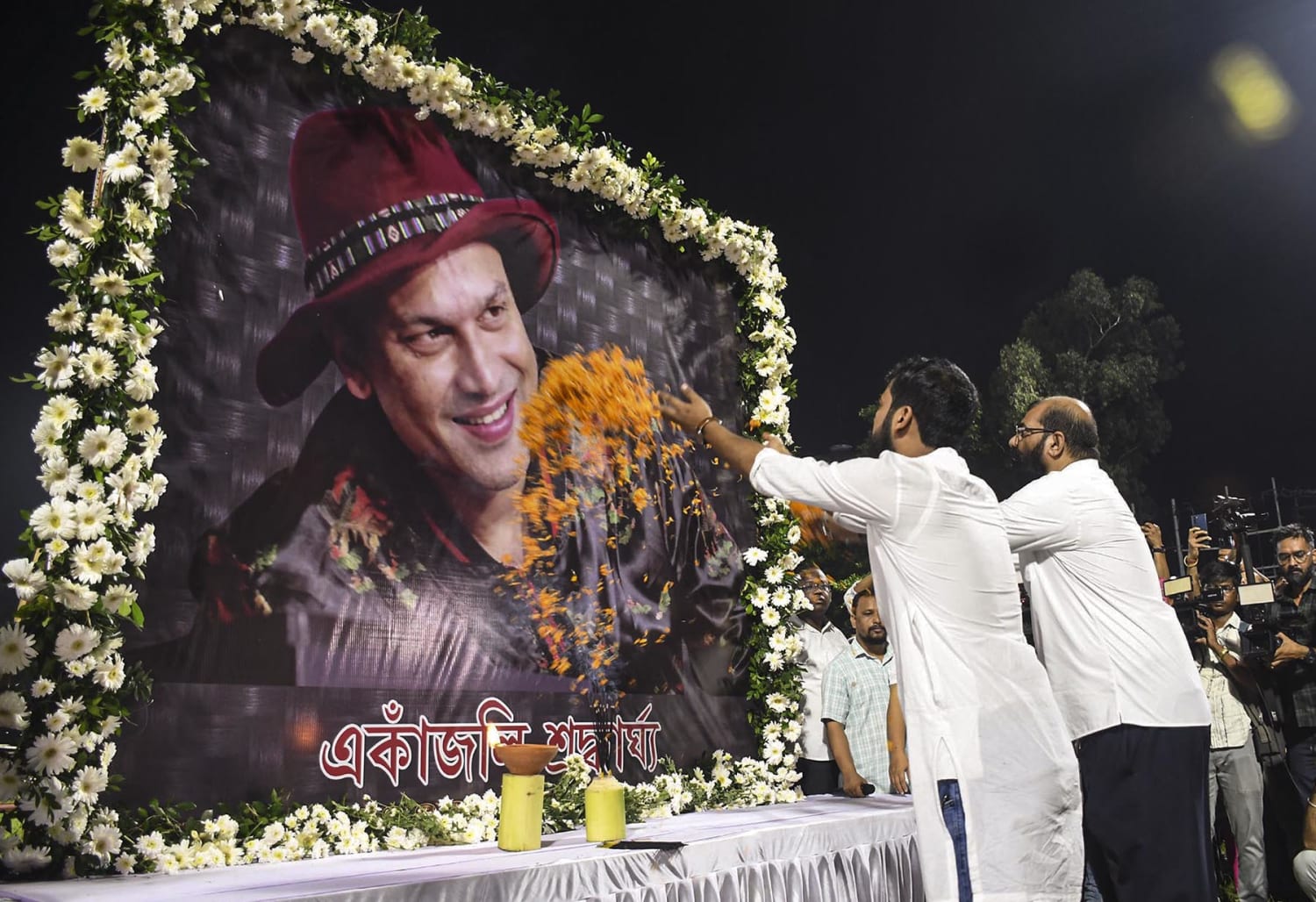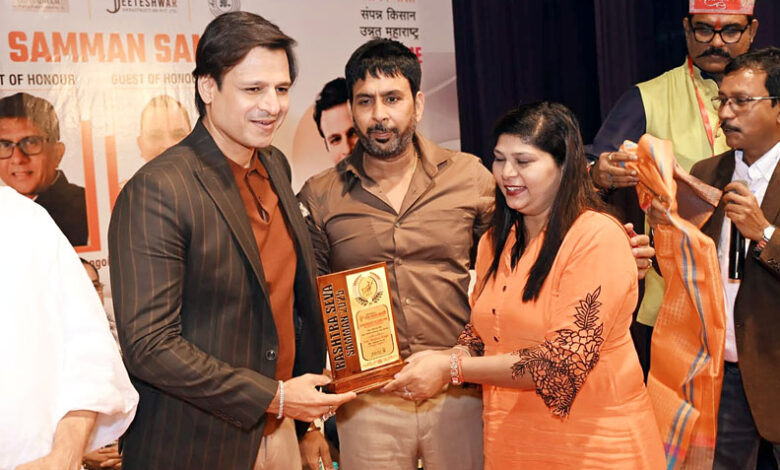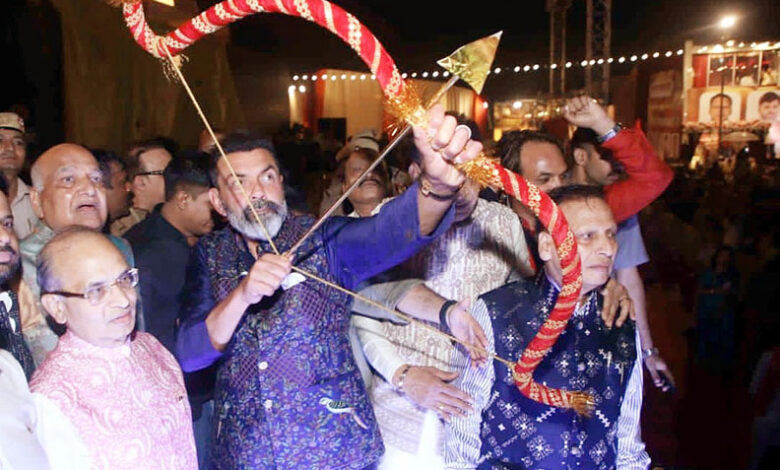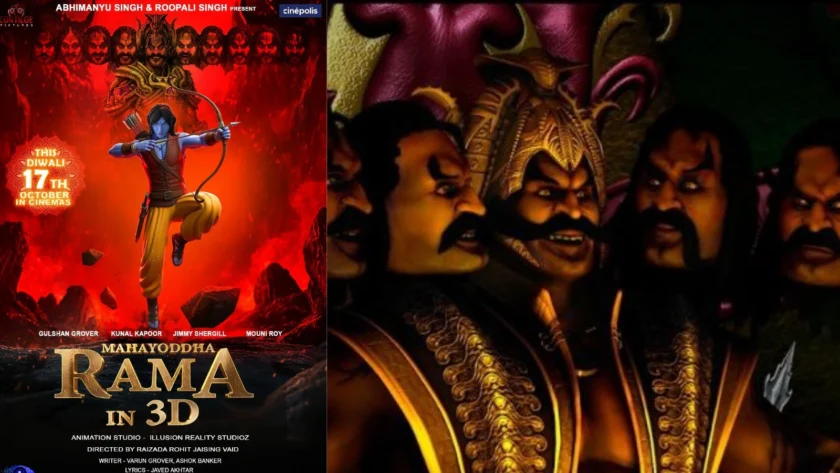Guwahati: In the verdant hills and misty rivers of Assam, Zubeen Garg was more than a singer—he was the heartbeat of a culture. Born on November 18, 1972, in Tinsukia, this multifaceted artist rose from the humble strains of Assamese folk tunes to the glittering stages of Bollywood, blending regional rhythms with universal appeal. His voice—raw, resonant, and emotional—carried the soul of Northeast India to millions across the country.
From Ya Ali in Gangster (2006) to his Assamese classics, Zubeen’s music bridged geographies and generations. A recipient of the Channel V Music Award for Best Indian Pop Album in 1996, he stood at the confluence of creativity and cultural pride. But Zubeen wasn’t just a singer. He was a composer, actor, director, poet, and philanthropist—an artist whose passion transcended boundaries. His directorial venture Mission China (2017) showcased his cinematic vision, while initiatives like the Nazirating Tamuli Tourism Festival revealed his deep environmental consciousness. In 2022, a 20-foot statue was unveiled in his honor—a symbol of Assam’s love for its most cherished son.
Yet, beneath the adulation, Zubeen was a man weighed down by the pressures of fame. In several interviews, he had spoken candidly about the exploitative nature of the entertainment industry, remarking, “People made me like a machine and used me. All these people will run away when I die.” Few could have imagined how eerily prophetic those words would sound just weeks later.
A Tragic Evening in Singapore
September 19, 2025. The day began like any other on a promotional trip for the 4th Northeast India Festival in Singapore—an event celebrating six decades of India-Singapore diplomatic relations and the India-ASEAN Year of Tourism. Zubeen was scheduled to perform as the headline act.
Accompanied by his long-time manager Siddharth Sharma—his business partner since 2014 and co-owner of Zubeen Garg Music LLP—along with festival organizer Shyamkanu Mahanta and members of the Assam Association Singapore (AAS), Zubeen boarded a luxury yacht near Lazarus Island. The atmosphere was one of relaxation and camaraderie.
But by evening, the celebration turned to chaos. Witnesses reported that while swimming in shallow waters, Zubeen began frothing at the mouth and gasping for air. A man known to be an expert swimmer, he suddenly collapsed. Despite immediate rescue efforts and being rushed to a hospital, he was declared dead. Official cause: drowning.
The news sent shockwaves across India. Assam Chief Minister Himanta Biswa Sarma confirmed the death certificate issued by Singapore authorities but noted that it wasn’t a complete post-mortem report.
A Nation in Mourning
When Zubeen’s mortal remains returned to Guwahati on September 22, thousands thronged the streets. Men, women, and children—many draped in black—lined up to bid farewell to their hero.
Prime Minister Narendra Modi expressed his grief, saying Zubeen’s voice was “popular among people across all walks of life.” From Bollywood, Aamir Khan called him “a true legend whose voice touched millions,” while actor Randeep Hooda wrote, “Legends never die.”
In a state often divided by religion and politics, Zubeen’s death momentarily united everyone. Muslim truck driver Imam Hussain stood beside Hindu devotees during the funeral, declaring, “He was ours, no matter what faith we follow.”
Vigils swept social media. Artists like Papon paid emotional tributes on stage, and hashtags such as #JusticeForZubeen began trending. Yet, beneath the mourning, something darker began to surface.
Whispers of Foul Play
The first hints of mystery came from Zubeen’s wife, Garima Mahanta, who returned the autopsy report to authorities, insisting it belonged to the state, not her. The gesture triggered suspicion. How could a strong swimmer like Zubeen drown in calm waters?
By September 24, public anger exploded. Protests erupted outside Siddharth Sharma’s Guwahati residence. FIRs flooded police stations, alleging negligence, exploitation, and even conspiracy. Under mounting pressure, the Assam government formed a nine-member Special Investigation Team (SIT) led by Special DGP M.P. Gupta. Simultaneously, a one-man judicial commission under Justice Soumitra Saikia of the Gauhati High Court was constituted to ensure transparency.
Chief Minister Sarma made a bold declaration: “If we don’t deliver justice, don’t vote for BJP in 2026.”
The Investigation Tightens
On October 1, Assam Police arrested Siddharth Sharma in Delhi. He was charged under Section 103 of the Bharatiya Nyaya Sanhita (BNS) for murder, along with related counts of culpable homicide, conspiracy, and negligence. Festival organizer Shyamkanu Mahanta was detained soon after.
The case escalated rapidly as the SIT gathered “material evidence,” including financial documents, CCTV footage, and digital records. Band members Shekhar Jyoti Goswami (drummer) and co-singer Amritprabha Mahanta were also brought in for questioning.
A video clip showing Goswami swimming unusually close to Zubeen moments before the incident became viral, adding fuel to the fire. The SIT also discovered that two unidentified individuals had been given access to Zubeen’s hotel room at the Pan Pacific Hotel—a detail that raised eyebrows about possible tampering.
The Chilling Confession
The turning point came with a leaked SIT remand note obtained by media outlets such as News18 and Times Now. In his statement under Section 175 of the Bharatiya Nagarik Suraksha Sanhita (BNSS), drummer Shekhar Jyoti Goswami alleged a “conspiracy to portray the death as accidental.”
According to him, Siddharth Sharma and Shyamkanu Mahanta had “planned the murder” and used Singapore’s jurisdictional distance to their advantage. Goswami claimed that Sharma personally managed all of Zubeen’s drinks on the yacht and had instructed others not to serve him anything.

Moments before Zubeen began frothing, Sharma allegedly dismissed his distress as “acid reflux,” delaying medical aid. Goswami further claimed he overheard Sharma shouting “Jabo de, jabo de” (let him go) as Zubeen struggled in the water.
“The man was an expert swimmer,” Goswami told investigators. “He could not have died due to drowning.”
Motives and Money
The question of why looms large. Sources close to Zubeen’s circle hint at financial disagreements within Zubeen Garg Music LLP. Sharma, as co-partner, allegedly had vested interests in the company’s future and Zubeen’s intellectual property rights.
Critics also point fingers at Mahanta’s festival management practices, accusing organizers of overworking the star despite his visible exhaustion. In one of his final interviews, Zubeen had lamented, “I’m tired of Mumbai. If I die here, Assam will remain closed for seven days.”
Social media sleuths drew parallels between Sharma and the mysterious 2023 death of actress Namrata Bora, whose father had accused him of similar exploitation. Theories about pharmaceutical tampering surfaced after drugs were found in Zubeen’s luggage, though nothing conclusive has been proven yet.
Doubts and Disputes
While the poisoning theory gained traction, authorities urged restraint. On October 4, CM Sarma clarified, “The poisoning claim came from an accused, not the police. We must wait for the viscera report.”
Singapore’s legal framework complicates the matter. The Assam government has requested mutual legal assistance to question AAS members who were on board the yacht. Eight have been summoned by the SIT, but jurisdictional constraints persist.
A second autopsy in Guwahati aims to corroborate Singapore’s findings, yet Zubeen’s wife’s refusal to release some personal belongings for forensic analysis has left many questions unanswered.
Meanwhile, forensic experts in Delhi are analyzing chemical samples, but the integrity of the process is being challenged amid leaks and media speculation.
The Public Trial
On social media, the case has exploded into a digital courtroom. The hashtag #JusticeForZubeen has crossed 200,000 posts on X (formerly Twitter). Fans circulate old podcast clips where Zubeen talked about betrayal, echoing with haunting relevance.
Activists demand transparency; some call for international oversight. The Assam Jatiya Parishad has alleged political shielding of certain individuals, while conspiracy theories linking powerful business circles are rampant. Even influencers and content creators have entered the fray, urging independent investigations.
As of October 5, four individuals remain in custody, and the SIT has reconstructed Zubeen’s last 48 hours using phone records, hotel logs, and CCTV footage. Two sealed post-mortem envelopes—one from Singapore, one from Guwahati—now hold the potential truth.
The Legacy and the Lament
In death, Zubeen Garg has become both martyr and mystery. Once celebrated for his melodies, he is now at the center of one of Assam’s most sensational investigations. His death—whether accident or assassination—has exposed fault lines in the entertainment industry, where money, loyalty, and fame collide.
Yet, beyond the murk of speculation, Zubeen’s music continues to resonate. From O Mur Apunar Desh to Mayabini, his songs are still sung across tea gardens, homes, and music cafes. He remains the eternal voice of an aspirational, emotional Assam.
But the quest for justice continues. Will the viscera report confirm poisoning? Will the judicial commission expose a conspiracy, or will the truth drown in political and emotional tides?
As candles flicker in Guwahati’s dusk and fans sing his songs in defiance of silence, one thing is certain—Zubeen Da’s melody lives on. Yet, until justice finds its voice, that melody carries a haunting refrain: an unfinished symphony suspended between faith and doubt.
For now, Assam waits—not for another song, but for the final note of truth.






